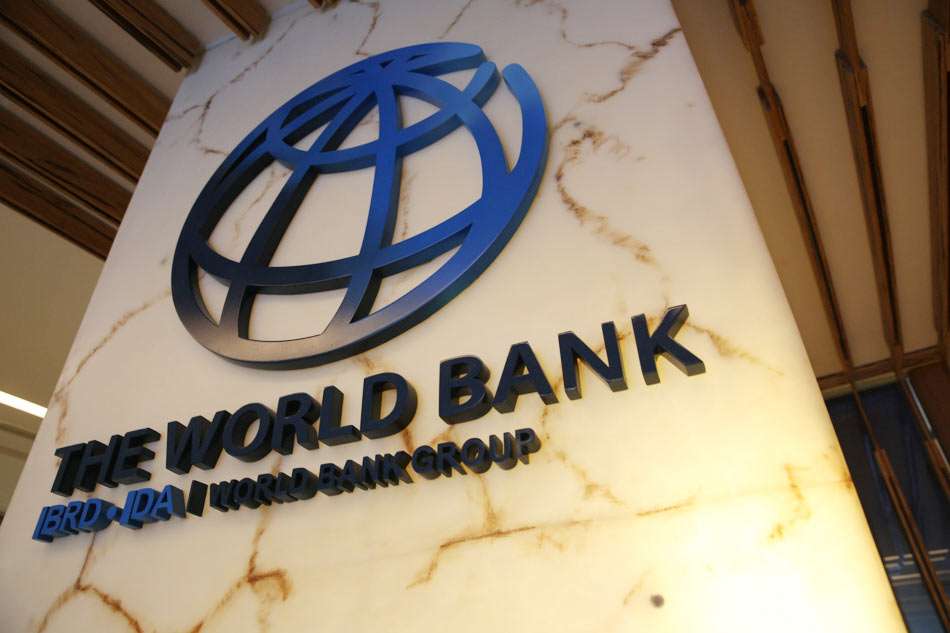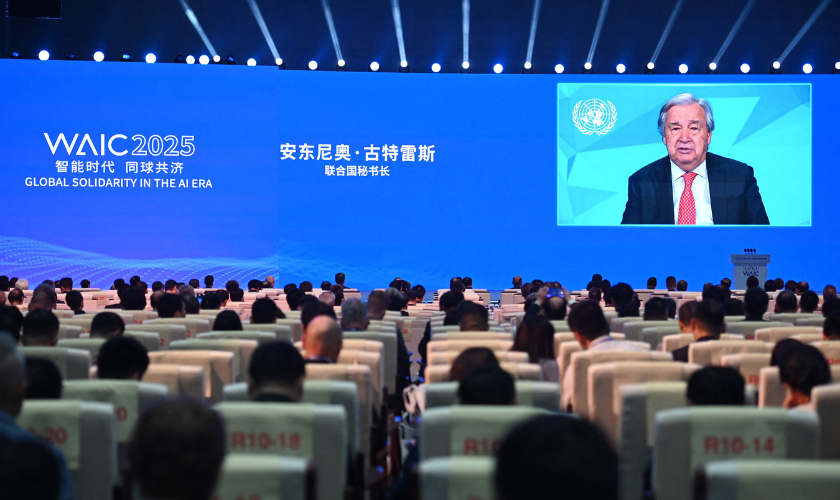At present, individuals are increasingly reluctant to keep their liquid funds in banks due to persistently low interest rates. In this environment, the share market presents a timely opportunity for capital mobilization. However, ongoing structural challenges and regulatory bottlenecks have prevented the market from gaining consistent upward momentum. Despite reasonably strong turnover figures, the overall market index has failed to meet expectations. Under these circumstances, Initial Public Offerings (IPOs) appear to be the most viable instrument for channeling savings into productive investment.
IPOs do more than just raise equity for individual companies—they play a crucial role in mobilizing domestic savings and deepening the financial market. A steady flow of new listings enhances market liquidity and provides fresh investment opportunities. Given that the banking system currently holds a liquidity surplus of over Rs 320 billion, channeling a portion of that into the private sector via equity markets would be both timely and impactful.
New IPOs also introduce additional tradable securities, which support the development of complementary financial services and encourage innovation in financial products. This contributes to greater market efficiency and broadens the scope of investment avenues. Public listings promote transparency, reduce information asymmetries, and strengthen corporate governance through compliance with regulatory standards.
Access to new capital enables companies to fully activate their production capacity and pursue business expansion—whether through new product lines, hiring, or geographic diversification. For example, the last ten IPOs injected more than Rs 8.5 billion into the market. Public scrutiny also incentivizes management to enhance operational efficiency, drive innovation, and boost overall productivity.
Beyond corporate growth, IPOs allow a wider segment of the population to participate in wealth creation through ownership, dividends, and capital gains. This can lead to increased household wealth, higher consumer spending, and a broader positive multiplier effect across the economy.
However, it has now been over 20 months since the IPO process stalled in the country.
Hydropower Company’s Puzzle
As many as 43 hydropower companies, with a combined offering of Rs 20 billion, are in the IPO pipeline. However, the entire process came to a standstill after the Public Accounts Committee (PAC) of the House of Representatives introduced a policy barring IPO approvals for companies whose net worth is below Rs 90 per share. Many of these under-construction hydropower companies appealed for a revision of the decision—arguing for the right to float shares at par value (Rs 100) despite falling short of the required net worth threshold.
In this context, the role of the Securities Board of Nepal (SEBON), the capital market regulator, appears both valid and necessary. The general public, eager for IPO opportunities, tends to apply without conducting due diligence on the companies themselves. Once listed, these stocks are traded in the secondary market largely based on speculation—often disconnected from the company’s actual financial health. Therefore, SEBON has a responsibility not only to regulate IPO issuance but also to ensure that financially weak companies are not allowed to trade freely in the secondary market.
That said, the prolonged delay of over 20 months raises legitimate questions. IPOs are being approved and issued on an inconsistent, seemingly arbitrary schedule. A review of the last 10 IPOs reveals no fixed monthly timeline or routine. The process appears disorganized and lacks transparency.
This brings up a key question: Are all 89 companies currently in the pipeline truly ineligible? If so, SEBON should clearly communicate this to the market. Leaving both companies and investors in prolonged uncertainty, without capital access on one end and without investment opportunities on the other, seems neither efficient nor fair.
This situation has implications far beyond the stock market. The delay is not only affecting companies and retail investors—it is hindering broader capital mobilization and slowing down momentum across the entire economy.
Skepticisms Abound
The atmosphere of growing skepticism intensified after the Independent Power Producers Association of Nepal (IPPAN) publicly raised concerns about delays in IPO approvals by the SEBON. The issue gained further traction following the involvement of the Commission for the Investigation of Abuse of Authority (CIAA). CIAA's intervention is expected to bring greater scrutiny and, ideally, a resolution that will clarify the situation.
Adding to the controversy, the Supreme Court’s recent decision allowing the IPO of Reliance Spinning Mills cast further doubt on the functioning of SEBON. The IPO approval of Sanvi Energy, which followed a brief procedural confusion, also contributed to widespread skepticism.
The situation worsened when companies such as Pure Energy and Bikash Hydropower Limited issued public statements denying any bribery in connection with their IPO approvals. These clarifications, though well-intentioned, added fuel to public suspicion that malpractice or favoritism might be influencing regulatory decisions.
Reliance Spinning Mill’s IPO became a focal point of public debate. On one hand, investors, especially new entrants, were eagerly awaiting fresh investment opportunities. On the other, the sudden approval of the IPO amid existing concerns about delays fed into rumors of bribery and commission-driven decision-making within the regulatory body.
Currently, aside from hydropower companies, the IPO pipeline includes nine tourism-related companies, three investment firms, 18 production and processing companies, one microfinance institution, three microinsurance firms and 12 other businesses. Of these, only a few have net worth below Rs 90. Blocking the entire pipeline based on a handful of exceptions raises valid questions about fairness and transparency in the approval process.
Ignorance Isn’t Always Bliss
The suspension of IPO issuance has broader economic implications that are often overlooked. IPOs enable companies to raise capital, which in turn fuels domestic production, generates employment and contributes to GDP growth. The government benefits through increased tax revenue, while investors gain avenues for meaningful financial participation—ultimately mobilizing capital across the economy.
This concern is not exclusive to IPPAN; rather, it reflects a sentiment widely held by the general public. IPPAN simply took the lead in voicing it.
Unfortunately, the importance of IPOs in capital formation and economic development is rarely acknowledged in Nepal’s policy discourse. None of the political leaders have publicly addressed the issue—likely due to a lack of awareness. IPOs may seem small in monetary terms, but their role in job creation, innovation, entrepreneurship and economic dynamism is significant.
For context, the Securities Industry and Financial Markets Association (SIFMA) in the US has stated that 92% of new jobs stem from companies that have gone public through IPOs. From China to Brazil, IPOs are considered a strategic economic tool to stimulate capital markets and unlock nationwide growth.
Impacts Run Deep
Delays in IPO issuance not only erode investor confidence but also negatively impact the securities market, disrupt market forecasting, and cause missed opportunities across the broader market landscape. Without timely access to public investment, companies risk unfavorable valuations and waning investor interest. Business plans are directly affected, often leading to increased legal, regulatory, and administrative costs—draining resources without yielding returns.
For example, Life Insurance Corporation (LIC) Nepal suffered significant losses due to IPO delays caused by the COVID-19 pandemic. The pandemic created extreme volatility and uncertainty, affecting the entire IPO pipeline.
Globally, similar examples illustrate the cost of missed timing. Chinese fintech giant Ant Group lost the opportunity to raise $34 billion after its IPO was halted just two days before its scheduled launch. Its valuation plummeted from $300 billion to under $100 billion, shaking investor confidence not just in Ant but across the entire fintech sector. Other companies like US real estate tech firm WeWork, Saudi oil and gas giant Aramco and Southeast Asian ride-hailing and fintech firm Grab also faced delays that led to stock slumps, reduced valuations and loss of investor trust. In several cases, these companies were forced to scale back operations, cut jobs, or sell assets.
In Nepal, a backlog of IPOs has not been resolved. While some of this delay may be attributed to regulatory bottlenecks and incomplete documentation, a more pessimistic view points to inefficiencies and lack of coordination in the approval system. Either way, the outcome is the same: a stalled pipeline that undermines the health of the Nepal Stock Exchange (NEPSE) and discourages private sector growth.
It is important to recognize that IPOs are not just a corporate concern—they play a vital role in deepening capital markets, mobilizing domestic resources and strengthening the financial system. At a time when Nepal is striving to attract Foreign Direct Investment (FDI), discouraging domestic capital formation sends the wrong message. It is essential to streamline the IPO approval process and maintain a routine issuance schedule. If executed properly, these measures could revive momentum in Nepal’s primary market, rebuild investor trust and help companies raise much-needed capital to support national economic development.
(Regmi is Deputy Manager at Rastriya Banijya Bank Ltd.)
(This opinion article was originally published in June 2025 issue of New Business Age Magazine.)












